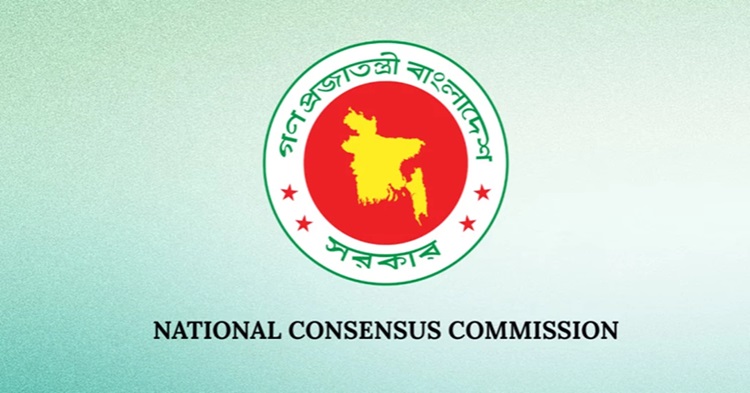Reform dialogue: Consensus on presidential election


The National Consensus Commission (NCC) on Thursday announced decisions on several important reform issues including appointment of the caretaker government chief, formation of a 100-member Upper House through proportional representation (PR) amid opposition from BNP and several other parties, while political consensus was achieved over the presidential election through a secret ballot of the members of both houses of parliament.
The NCC took the decisions at the last day's session of the second-round dialogues with political parties in the city's Foreign Service Academy.
Other issues decided by the Commission based on support from most political parties include the fundamental principles of the State, expansion of fundamental rights of the nationals, the appointment process to the key posts of four important institutions –PSC, ACC, CAG and the office of ombudsman– and the authority and the responsibility of the President.
Caretaker Government:
According to the decisions taken by the NCC, a five-member search committee headed by the speaker and comprised of the prime minister, the opposition leader, the deputy speaker (from the opposition) and a representative from the third largest party in parliament, will select the chief adviser from a list of 12 nominees --- five names each nominated by the ruling party and the main opposition and two names by the third largest party—on the basis of consensus or at least 4-1 majority.
If the committee fails, then it will be expanded to a seven-member body incorporating two justices from the higher court before going for a ranked choice voting system.
The seven members will attend the ranked choice voting to pick the chief adviser. The provisions mentioned in the 13th amendment of the constitution have been proposed as the last option to select the caretaker chief, dropping the president from the provisions.
BNP, however, voiced dissent over certain aspects of this mechanism, including the involvement of two justices and the use of ranked-choice voting.
Upper House:
As per the NCC's decision, a 100-member Upper House to be formed through the Proportional Representation (PR) system based on the percentage of votes, amid opposition from BNP and several like-minded parties.
the Upper House will not have the authority to enact any law on its own. However, all bills, except financial bills, must be introduced in both the Lower and Upper Houses.
The Upper House will not be allowed to keep any bill pending permanently. If any bill remains pending for more than a month it will be considered approved by the Upper House.
The Upper House will review and analyse the bills passed by the Lower House and must approve or reject them within a stipulated time.
If approved, the bill will move to the president for assent. If rejected, the Upper House will return it to the Lower House with recommended amendments, which the Lower House may accept in full, in part, or reject entirely.
The candidates with at least 10pc woman aspirants for the Upper House shall be announced alongside that of the national parliamentary election.
BNP, the Labour Party, NDM, the 12-party alliance, and the Nationalist Alliance also oppose a PR-based Upper House. On the other hand, Jamaat-e-Islami, NCP and others supported the commission’s decision. CPB, BSD, Jamiat-e-Ulama-e-Islam, and the People's Party rejected the idea of an Upper House entirely, citing socioeconomic realities.
The Commission decided to incorporate the appointment process to the key posts of four constitutional bodies—the Public Service Commission (PSC), Anti-Corruption Commission (ACC), Comptroller and Auditor General (CAG), and Ombudsman— in the constitution. BNP and four other parties expressed their opposition and said they would register formal notes of dissent.
Presidential election:
Political parties on Thursday reached a consensus that the President will be elected through secret ballot by a majority vote of the members of both Houses of Parliament – the Upper House (Senate) and the Lower House.
The commission decided that the President shall independently appoint key constitutional and statutory officeholders—such as the NHRC Chair, Chairpersons and Members of the Information Commission and Law Commission, Press Council, Energy Regulatory Commission and Bangladesh Bank Governor– without consultation with the Prime Minister.
